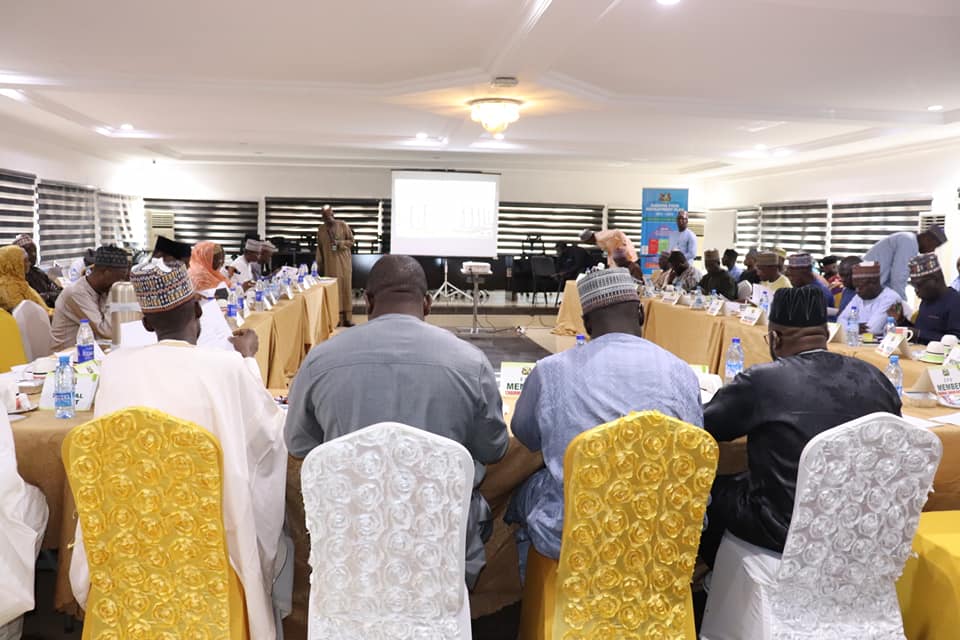
On 25 September 2015, the Member States of the United Nations agreed on the 17 Sustainable Development Goals (SDGs) of the Post-2015 Development Agenda. The SDGs build on the Millennium Development Goals, the global agenda that was pursued from 2000 to 2015, and will guide global action on sustainable development until 2030. The SDGs are a cause for celebration by local and regional governments the world over.
Even before Kaduna State is fully committed to galvanizing collaborative efforts of the Civil Society, Academia, international, regional, national and sub-national entities – both public and private- and the general public towards achieving the SDGs.
The Kaduna State Government of today has taken steps to set the standard for transparent decision making, citizen engagement (the first sub-national to subscribe to OGP), and a competent and responsive public service, looking at young people everywhere in public institutions of the State not to talk of political Appointees who are generally vibrant young men and women. All these are the requisite foundation laid for the attainment of the SDGs by 2030.
Kaduna State made history on September 20, 2017, when it became the first State in Nigeria to present an in-depth analysis of its SDGs data and strategy for implementation at the 72nd United Nations General Assembly in New York (talking about SDGs report 2017).
The State has integrated the 17 SDGs into the State Development Plan 2016-2020 and specified concerted policy actions toward making Kaduna State a leading destination for business investment, achieving strong and inclusive growth that creates wealth for all, education for all and a healthy population with improved life expectancy.
The state government invested heavily to reposition the Kaduna State Bureau of Statistics to enable it to get accurate data that will guide decision-making in the State. The State conducted two General Household Surveys (KDGHS), two Annual School Censuses, a state gross domestic product (GDP) Survey (KDGDP), a population dynamics survey and an Agricultural Structure Survey (KASS). The State also conducted the Annual School Census between last year, and by the first week of March 2020, the State will be conducting its third General Household Survey (KDGHS). This survey is going to be the first of its kind not only in Nigeria but in Africa, as it will capture Maternal, Neonatal and Child Health. The data generated from these surveys helped the State to develop clear action plans on the way forward, especially with regard to the implementation of the SDGs.
Attaining the SDGs involves the collective efforts of all stakeholders. The role of each actor (state and non-state) cannot be over-emphasized. We are on the right track, but more needs to be done.
Thus, the mandates and activities of the Unit geared towards achieving the SDGs were localized into MDAs.
Click on each title below to expand
Conducted the SDGs Acceleration Conference in January 2019.
Facilitated the construction of 100 Nos Bed Mother and Child Care Hospital at Dan’daura in Kubau LGA being OSSAP-SDGs intervention.
Presented the Kaduna State 2017 SDGs Report which was subsequently launched at the 72nd United Nations General Assembly (UNGA) in New York, USA.
Executed the Construction of 124 Projects under the 2014 Conditional Grant Scheme (CGS) utilizing N1.2Bn, being counterpart funds from the Federal Government of Nigeria and Kaduna State of equal amounts. This was allocated to six high-burden Local Government Areas in Kaduna State (Kaura, Kachia, Igabi, Chikun, Ikara, Kubau).
Conducted mapping of SDGs Indicators to various Ministries, Agencies and Departments (MDAs) in Kaduna State.
Engaged Officers from Ministries, Departments and Agencies (MDAs) on Gender Mainstreaming.
Distributed items being OSSAP-SDGs 2017 Special Projects Intervention; including:
30 Number of Tricycles
200 Number of TVS Motorcycles
69 Number grinding Machines
1 Number TOYOTA HIACE Ambulance
10 Number Phototherapy Machines
10 Number Incubator
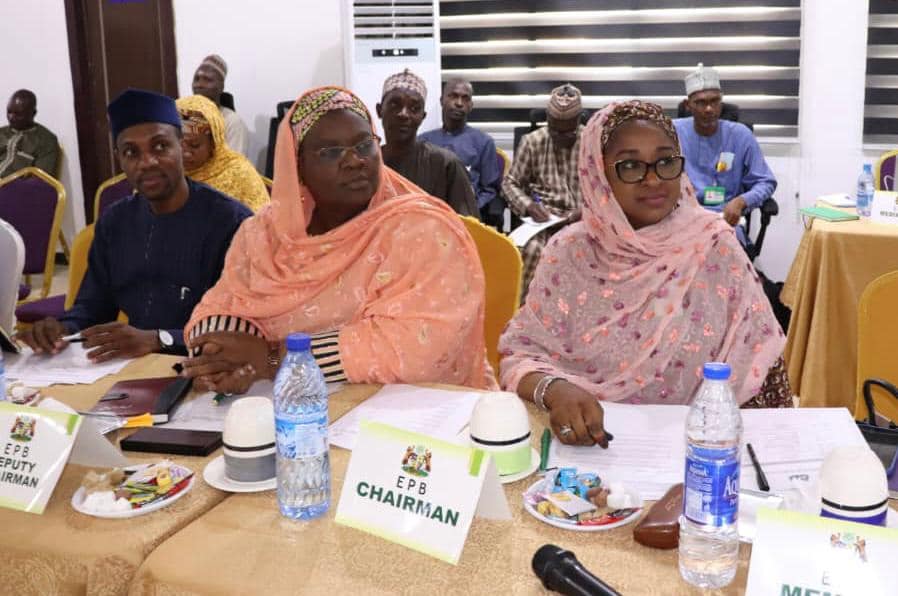
The unit was created in 2016 to implement the FGN program to identify the Poor and Vulnerable communities and populations of the State Single Register (SSR). By design of the whole program nationwide, SOCU is situated in the Planning and Budget Commission though staff are drawn from various MDAs within the Civil Service.
Click on each title below to expand
The National Social Investment Programs is a portfolio of Programs created in 2015 and launched in 2016 by the FGN to deliver socio-economic support to disadvantaged Nigerians across the Nation. In other words,NSIPs was created to overcome the failings of the past and to enshrine the values and vision of the current administration for graduating its citizens from poverty through capacity building, investment and direct support. The National Social Investment Office (NSIO) designed a holistic approach for delivering the Social Investment Portfolio by embarking on the following:
States are expected to form structures in order to efficiently coordinate and implement the programs. it is expected that each State Government appoints a State Focal Person who links up with each program to effectively brief His Excellency and the FGN on the happenings. The Kaduna State Focal Person is the State Coordinator, State Operations Coordinating Unit. Every state has its own arrangement on the coordination of the NSIPs .In Kaduna the arrangement is as follows:
The Unit work closely with MDAs/LGAs in charge of each program or component to:
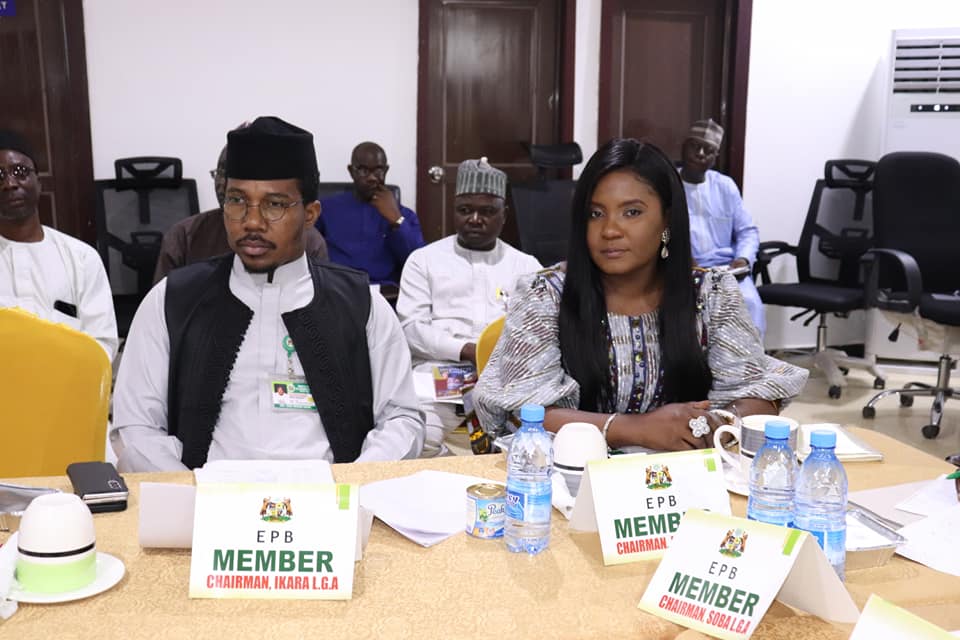
The Economic Intelligence Unit is a research oriented endeavour with the following core functions:
Click on each title below to expand
This focuses on the underlying real factors impacting both revenue and expenditure. It includes looking at the macroeconomic and mineral sector performance nationally and the macroeconomic performance of the state, and forging linkages with the relevant revenue and expenditure items to provide both a historical and forward looking commentary on performance. This would support both in-year and out-year decision making.
Identifying emerging economic and development issues that will be of interest and benefit to the state, from variety of sources including Kaduna State, Federal Government (such as NBS, CBN, NEC and other Federal MDAs), other states, development agencies and the private sector; and advising the Commissioner for Planning and Budget and the State accordingly. This function also involves monitoring the dynamics in the private sector and broader economy of Kaduna State, including identifying technical innovations that might benefit the state, use leading indicators to forecast the future dynamics and advice on policy formulation (and its impact on government).
A number of new policy pronouncements have been made both nationally and within Kaduna state. In many cases, the impacts (economic and fiscal) of the new pronouncements have not been assessed. The EIU will undertake this analysis both ex-ante (to inform policy, particularly in Kaduna State) and ex-poste.
Ad hoc briefing notes, position papers etc. on emerging issues – The unit is flexible under other ad hoc analysis that will support effective policy formulation, efficient service delivery and good governance in Kaduna State.
The learning visit exposed the structures of Lagos State EIU which has been in existence for close to a decade. During the visit, Kaduna State EIU understood the dangers in being under a department; this is because the Lagos State EIU has been subsumed under the planning department. In their ten years of existence, they could not show us any report or product produced by the Unit while the Kaduna State EIU presented twelve reports which was produced within just a year of their establishment. With this achievement, the Lagos State EIU is planning for learning and experience visit to Kaduna State EIU.
The training is aimed at strengthening the capacity of EIU`s use of Macroeconomic packages and tools for effective forecast and analysis. During the training staffs of EIU were trained on SPSS statistical package, infographics design and excel spreadsheet.
The workshop aimed at building evidence and capacity for demographic dividend in Kaduna State. It was also meant to estimate and prepare a draft Demographic Dividend (DD) report for Kaduna State. During the workshop, participants were taking through the use of STATA, R-Project and also how to estimate demographic dividend.
The report focuses on and analyze three different scenarios of implementing the new minimum as it affects the personnel cost and revenue of the state. This report was the reason behind Kaduna State Government being the first to implement the N30,000 minimum wage in Nigeria.
The report is a replica of the Economist Intelligence Unit Country report of Great Britain. It is a political and economic analysis and forecast of the upcoming year. It is highly sort after by development partners. It guides them on the possibilities of economic and political happenings in Kaduna State and how they will be able to bring in their funds to support the State.
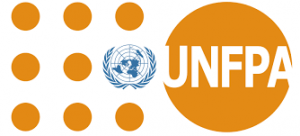

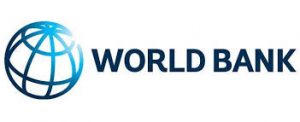

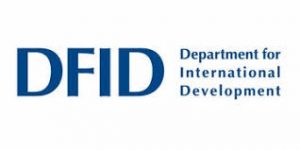

Copyright © 2022 PBC. All rights reserved.